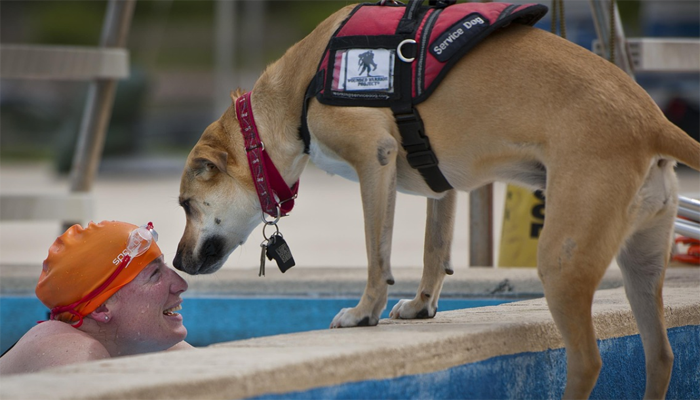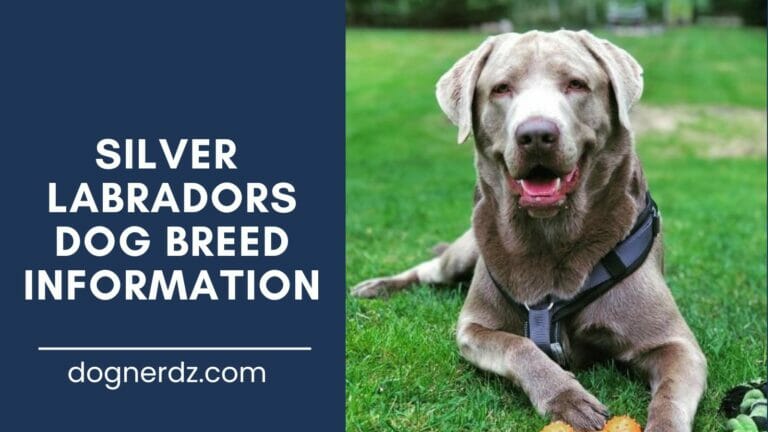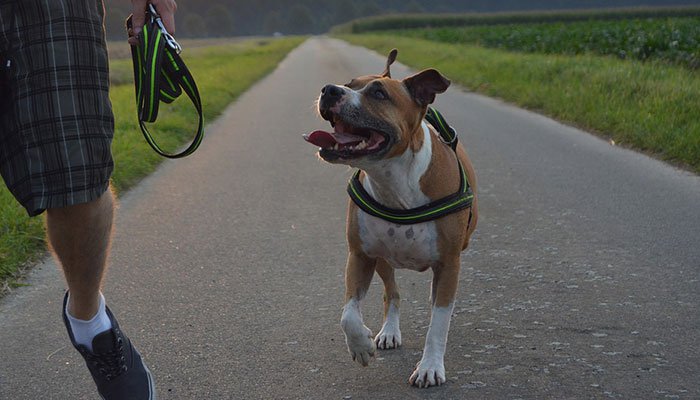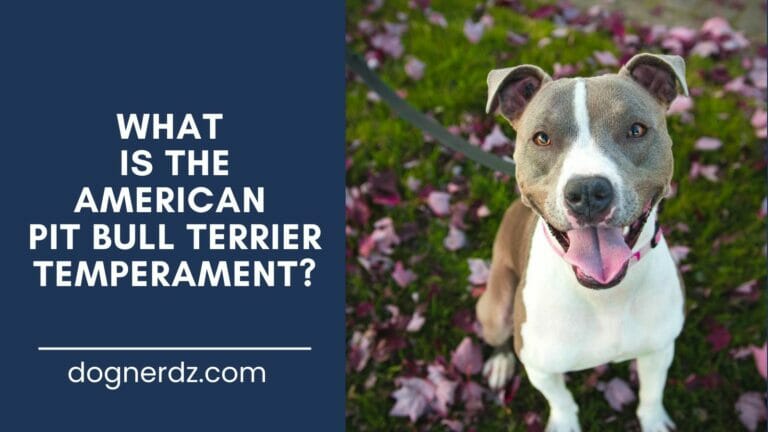Best Service Dog Breeds
Dogs have always been by our side, even from the dawn of time. Way back when, our ancestors counted on these four-legged pals to help chase down dinner, thanks to their incredible noses and amazing ears.
Fast forward to the 21st century, we no longer rely on our furry buddies to feed us and deliver goods (in big cities that is), instead, we need them for a different type of turmoils – the emotional ones.
Dogs can now earn the title of “service dog” and/or emotional support animal. Certain dog breeds have a natural disposition to provide soothing support to those in need.
Some of the well-trained dog breeds such as German Shepherds, Labradors and Golden Retrievers have always been known to be some of the best service dogs and create strong human and dog bonds. Depending on what type of service you need from your animal, different breeds offer different support.
One thing is for sure, these beloved canines all need to possess a mild temperament and lots of love! Let’s take a look at the best service dog breeds and what it takes to truly be man’s best friend.
Table of Contents
What Types of Service Dog Do You Need?
As mentioned, there are different types of service dogs. What service do they need to provide? That will greatly affect the breed that you are paired up with.
Let’s take a look at the two main categories of service breeds. The terms are often used interchangeably, but they actually possess different meanings.
Service Dogs
These types of dogs are specially trained to serve a certain purpose. For example, police dogs are a good example of service dogs as well as breeds that help the blind or the incapacitated.
In general, a good service dog breed will provide a specific purpose for the owner. Such dogs need to be highly intelligent to carry out these tasks. German Shepherds, Golden and Labrador Retrievers are great examples of pooches that fit into this category.
Emotional Support Dogs
Other than being physically disabled, there is the type of disability that cannot be seen by the naked eye. We are, of course, referring to the emotional type. Enter emotional support animals! They are the superheroes to those who suffer from depression, anxiety, PTSD, and other emotional hindrances that can make everyday activities that much harder.
They don’t need to go through rigorous extensive training as service dogs do, but they do need to have a steady and mild temperament, heightened emotional sensitivity and tons and tons of love.
Their job is mainly to detect any need of emotional support in their human and act accordingly. This usually comes in the form of showering their human with kisses when their fears or insecurities take hold.
Therapy Dogs
Therapy dogs and emotional support dogs may often be confused with one another. They do generally provide the same type of service, but therapy dogs are not assigned long-term to a specific individual and offer more focused support. For example, therapy dogs are used in hospitals or for people going through some sort of traumatic experience. Those who suffer from PTSD could also use a therapy dog if their cases are less severe.
Requirements for Service Dog Breeds
Unfortunately, not any breed can become a service dog and this is where a bit of discrimination might come in. However, we recognize that there are misconceptions about and exceptions to every breed. I personally know a few pitbulls that have earned a service animal badge and are among the sweetest creatures on earth.
To assess whether a certain dog is a suitable service, therapy or emotional support animal, there are hoops they need to jump through and boxes they need to check beforehand. Let’s look at the stringent guidelines that are put in place to determine the best service dog breeds.
1. Intelligence
One of the most important requirements of the best service dog breeds is intelligence. This also depends on the type of service your dog carries out, but in general for true service dogs that perform expert tasks, they need to have the smarts to learn how to do so. Therapy and emotional support dogs require more sensitivity for their tasks.
2. Friendliness
All in all, regardless of the service dog types, the best breed service dog will possess an abundant amount of friendliness. They need to be amiable to get close enough to a person and form a lasting bond. Not only do they need to handle themsevles well around humans, but other dog breeds and animals as well. Without the bubbly friendliness, some dogs are better used as watch dogs.
3. Eager to Please
The best service dogs types are eager to please. This is the hereditary trait that will make them easily trainable and genial. Again, this is a characteristic that is more important for straight service dogs.
4. Calm
Service dogs cannot be hyper, which is why we don’t often see puppy dogs performing services. They need to be able to keep a calm demeanor in public when things hit the fan and diffuse a potential problem with their humans. Looking for a calm dog doesn’t mean you should steer clear of alert dogs.
Dogs who are more alert may be aware of danger well before other humans would be. A confident and well-trained dog usually equates to a calm attitude. Definitely avoid dogs who are easily startled or hyperactive.
5. Cuddliness
By cuddliness we mean they don’t mind being held, hugged, and petted at any time of the day. This will develop over time with some breeds after a strong bond is established.
If your dog, regardless of the breed, has checked off all of the above characteristics, he or she can have the potential to be a support dog with proper training involved.
15 Best Service Dog Breeds
Now we are going to give examples of the best service dog breeds, touch upon the benefits they can provide and why they make great dogs to provide emotional support, therapy or specific services.
1. Labrador Retriever
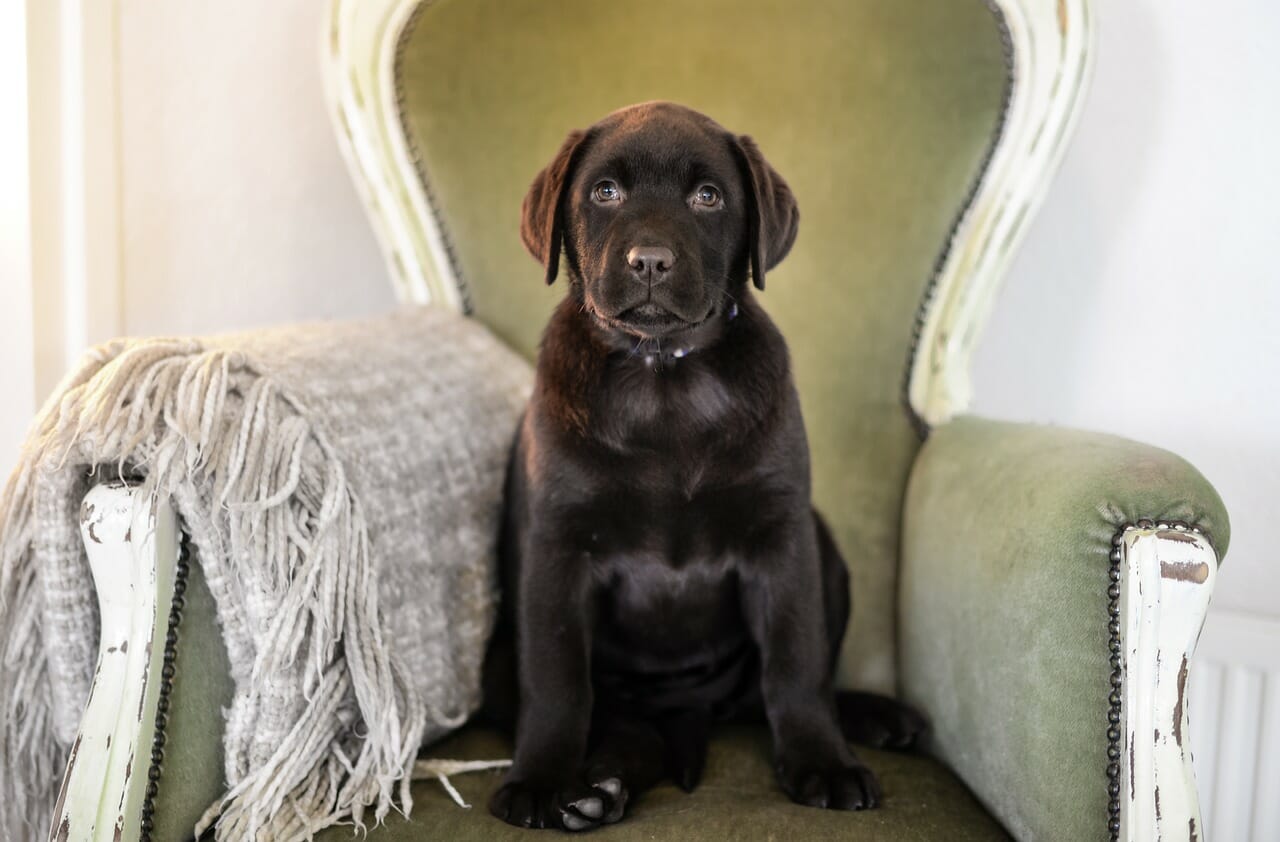
It’s no secret that these loveable and friendly dogs make great service animals. Their are good-natured and affectionate, which makes them great family pets as well. They are always gentle and are known to form strong and lasting bonds with their humans. For these reasons, these pooches make outstanding service animals.
Whether you need psychiatric service, have a disability or just want some good old fashioned cuddles, Labrador Retrievers can deliver and impress. They are one of the best examples of the best service dogs breeds that tick all the above boxes.
2. Golden Retriever

Similar to their short-haired counterparts, the Golden Retriever shares many traits with the Labrador Retriever. They are intelligent, easy to train and super friendly, Golden Retrievers are sweet and gentle support animals that help with a variety of needs such as leading the blind, PTSD relief, and reducing anxiety. Like Labs, Goldens can get quite big, so you do need to think about the amount of space you have before you adopt one of these loveable creatures.
3. German Shepherd
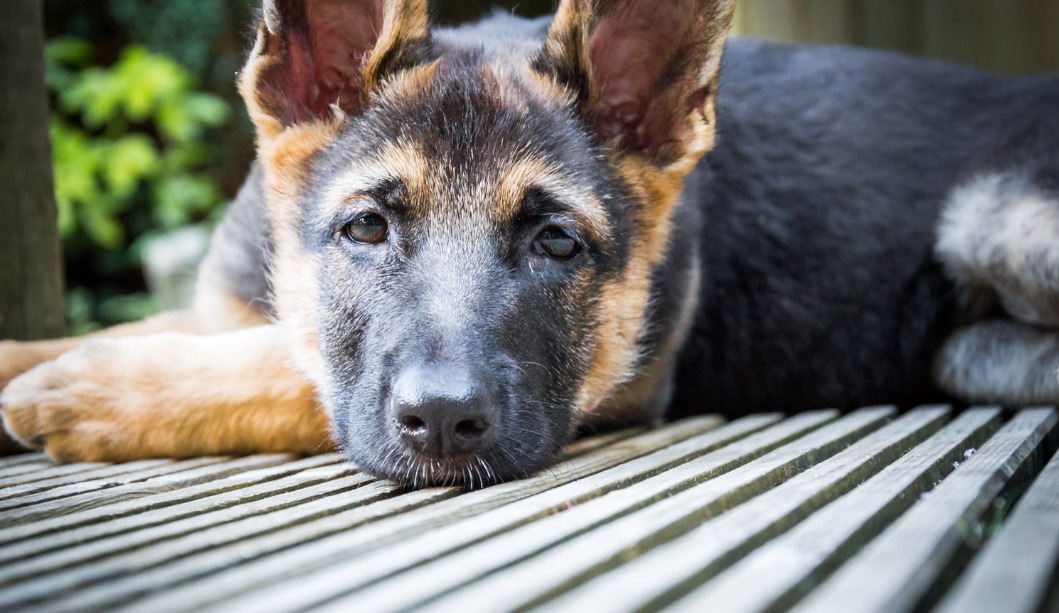
Famous for being excellent service dogs, German Shepherds can provide emotional support as well as perform more daunting tasks such as assisting law enforcement. They make great alert dogs and are also often used for guarding and protection.
They are even larger than the previous two breeds, which could make them a bit tougher to handle if you lack the space, but they are a fiercely loyal breed that are a jack of all trades in terms of providing service.
From protecting our brothers in blue to helping the physically impaired move around, German Shepherds are renowned and revered for their strength, dependability, loyalty and love.
4. Poodle
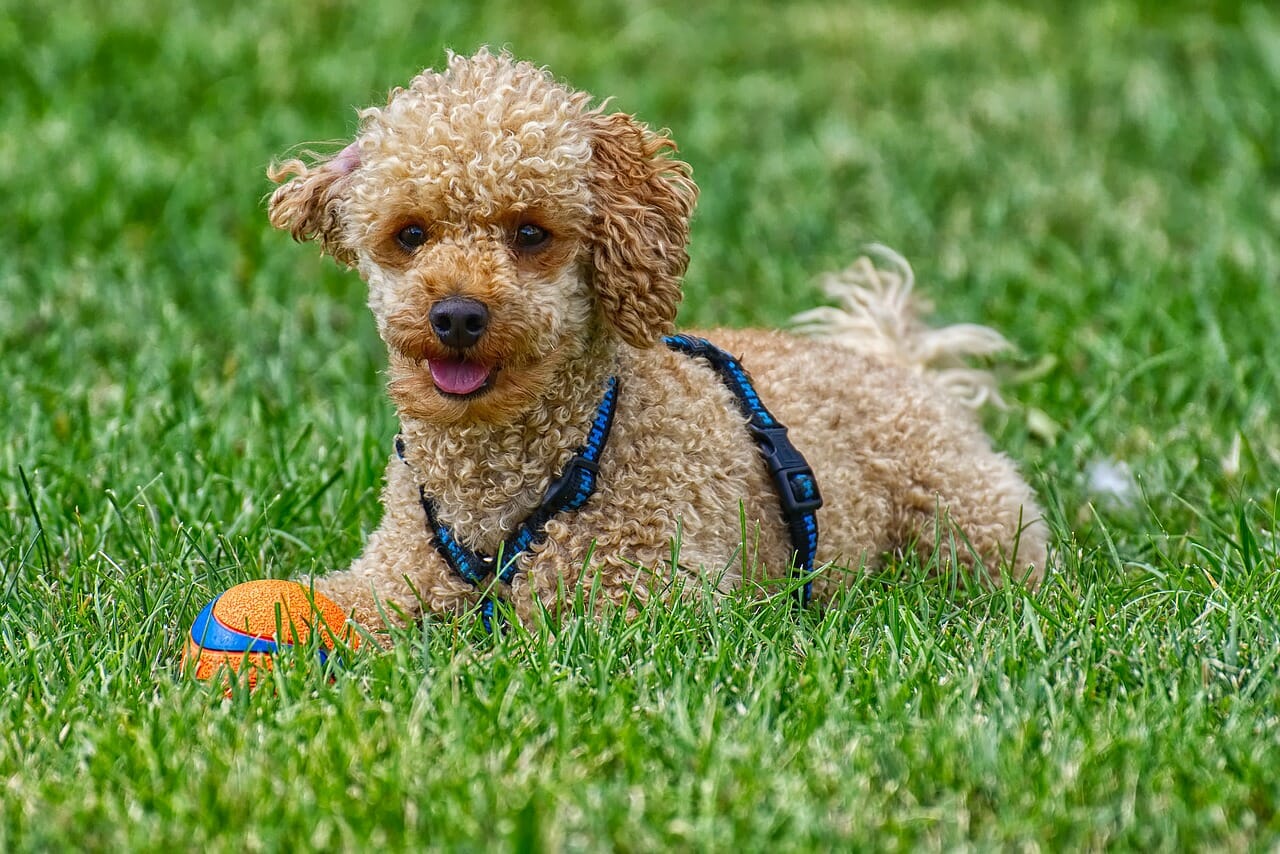
Poodles come in a few sizes, and while they can all be used as service dogs, we more commonly see the small to toy breeds just because they are easier to handle. However, if you need actual service work to be done, a Standard Poodle, which could be around the size of a Golden Retriever will have the physical ability to do so.
Poodles aren’t the prissy and prim dog breeds that movies and cartoons have led us to believe. In fact, they are one of the friendliest and easy to train service dogs out there. One thing is for sure, no matter which size you choose, get ready for lots of love and affection from your wiry-haired poodle.
5. Cavalier King Charles Spaniel
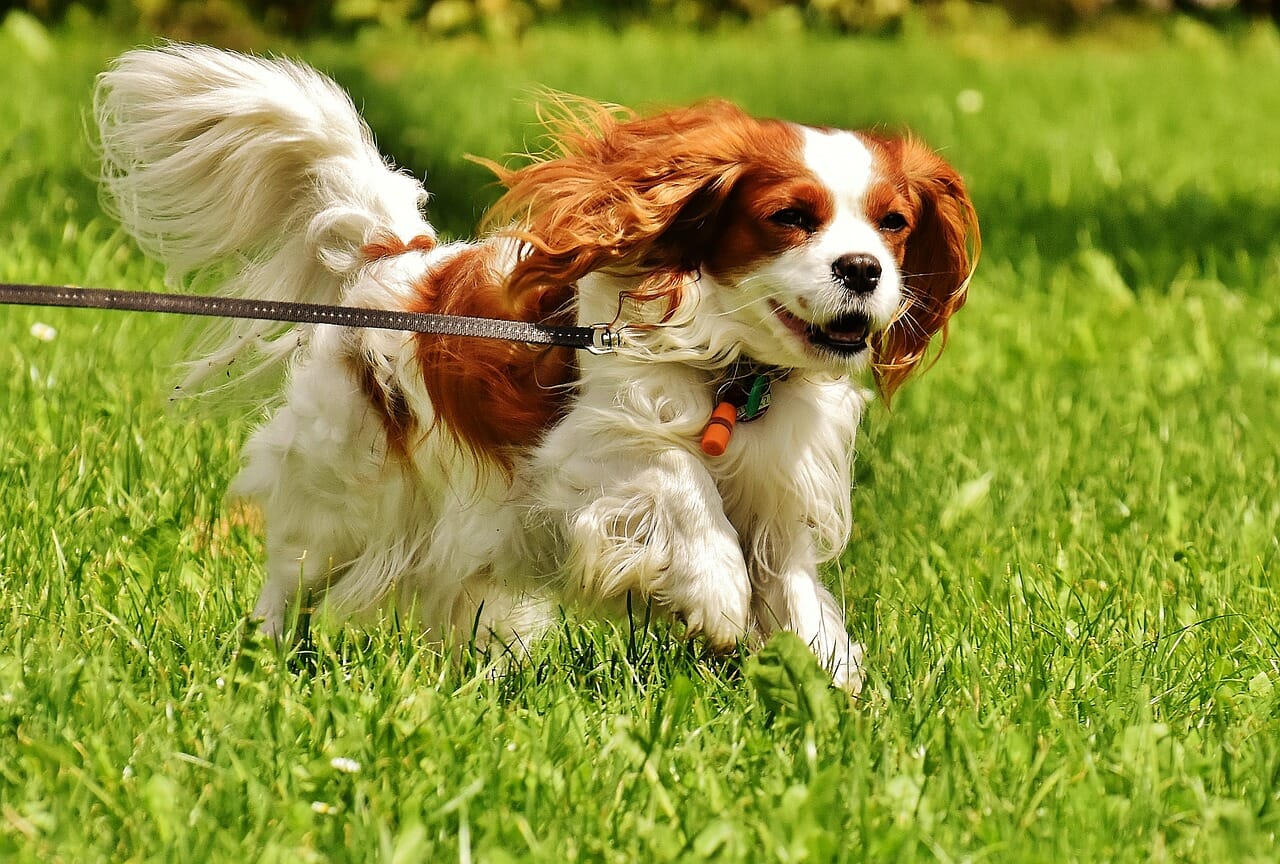
The name is a mouthful and some may be for familiar with their cousin, the Cocker Spaniel. The Cavalier King Charles Spaniel was bred for the European nobleman and their namesake, King Charles. He was obsessed with these dogs and for good reason too! They are an adorable breed with long and luscious silky fur that adds to their beauty.
They are a small breed, which makes them much easier to care for than larger service dog breeds and make excellent emotional support animals due to their friendly and loving nature. They are exceptionally good at handing out kisses and snuggles whenever your’re feeling down.
6. Pomeranian
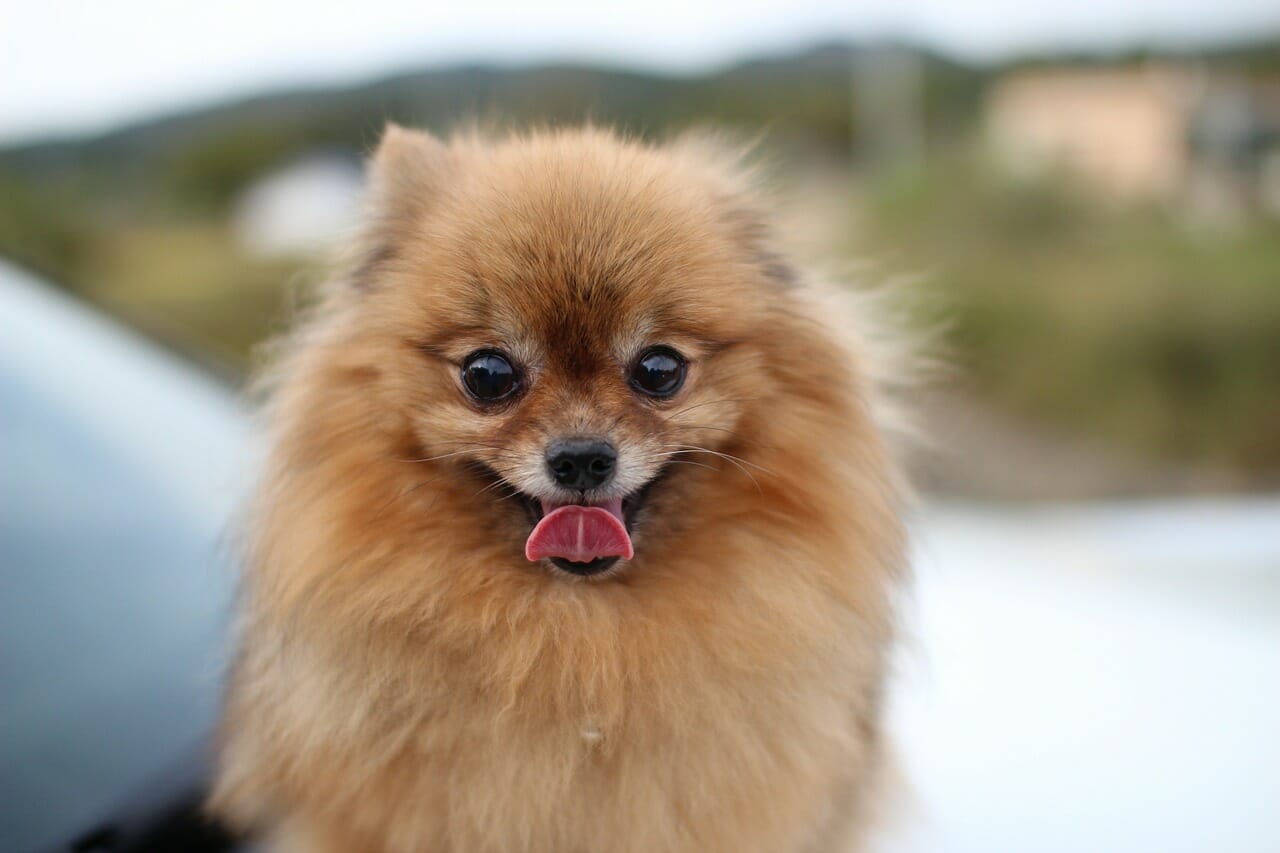
A negative misconception about the pom is that they are yappy little dogs that have princess attitudes. While this may be on the money for some, poms can actually be an excellent service dog breed.
Despite their small size, poms have are highly intelligent. They are attentive little creatures and can be very in tune with their owners. Their small size can work in their favor as with a legitimate emotional support animal or therapy dog badge, they can easily fit inside a bag or purse and accompany you into establishments.
7. Border Collie
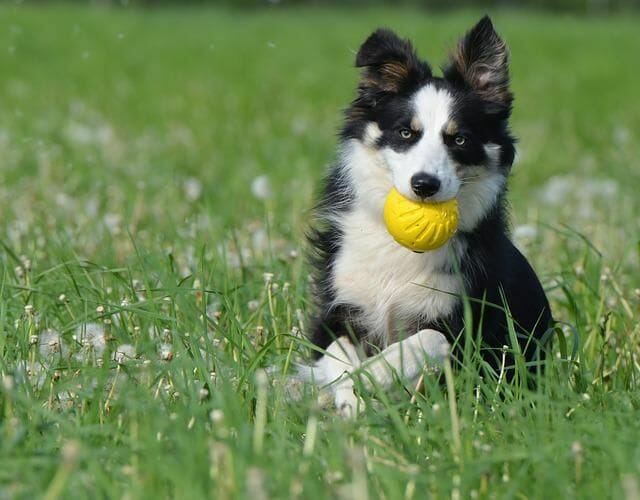
Yes, this dog breed requires a lot of exercise and may seem to be a bundle of energy. They are herding dogs, which translates to herding the family. For example, they are great at keeping watch over kids and making sure they don’t stray from the pack.
They are exceedingly intelligent, but with similar dogs with the same level of brainpower, Border Collies can be a bit rambunctious. This is especially apparent when they act out due to lack of exercise. Better have some playtime with them, take a look at these cool border collie toys.
This is why a Border Collie is great for hug, cuddles and can make a great exercise buddy, but they are not as suited for quiet and controlled support that German Shepherds can carry out.
8. Pitbulls
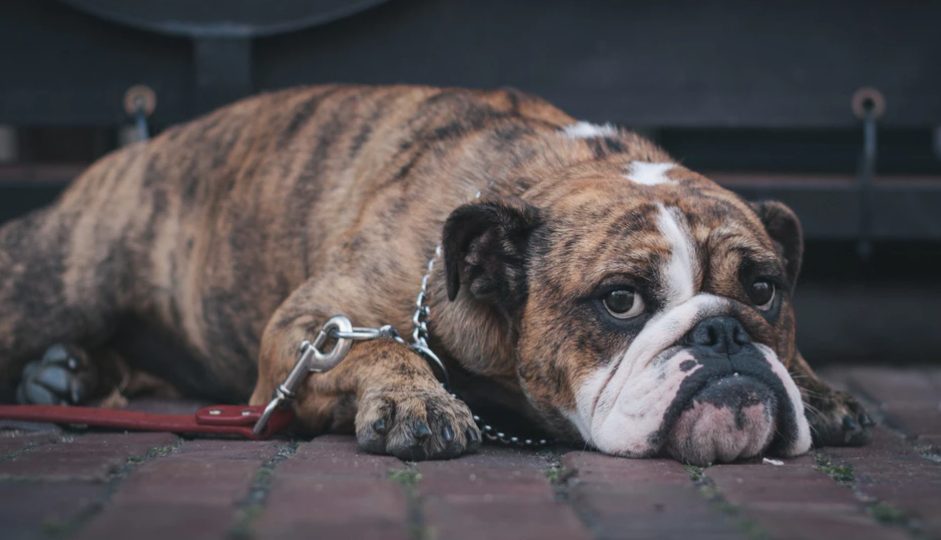
We briefly mentioned this before but because of the bad wrap that pitbulls get, we felt that they deserve their own section to set the record straight. There is no doubt that they are a strong and tough breed that can go one-on-one with the fiercest animals, but they have a soft side too.
They make an excellent emotional support dog due to their predominantly gentle and friendly nature. It’s up to the people to shirk the unfair characterization of this breed to understand the benefits they can provide.
They are great PTSD support animals and can be very well-trained to handle a variety of situations. Once you look into the eyes of these dogs, you will understand why they are considered to be one of the best emotional support animals around.
9. Collie
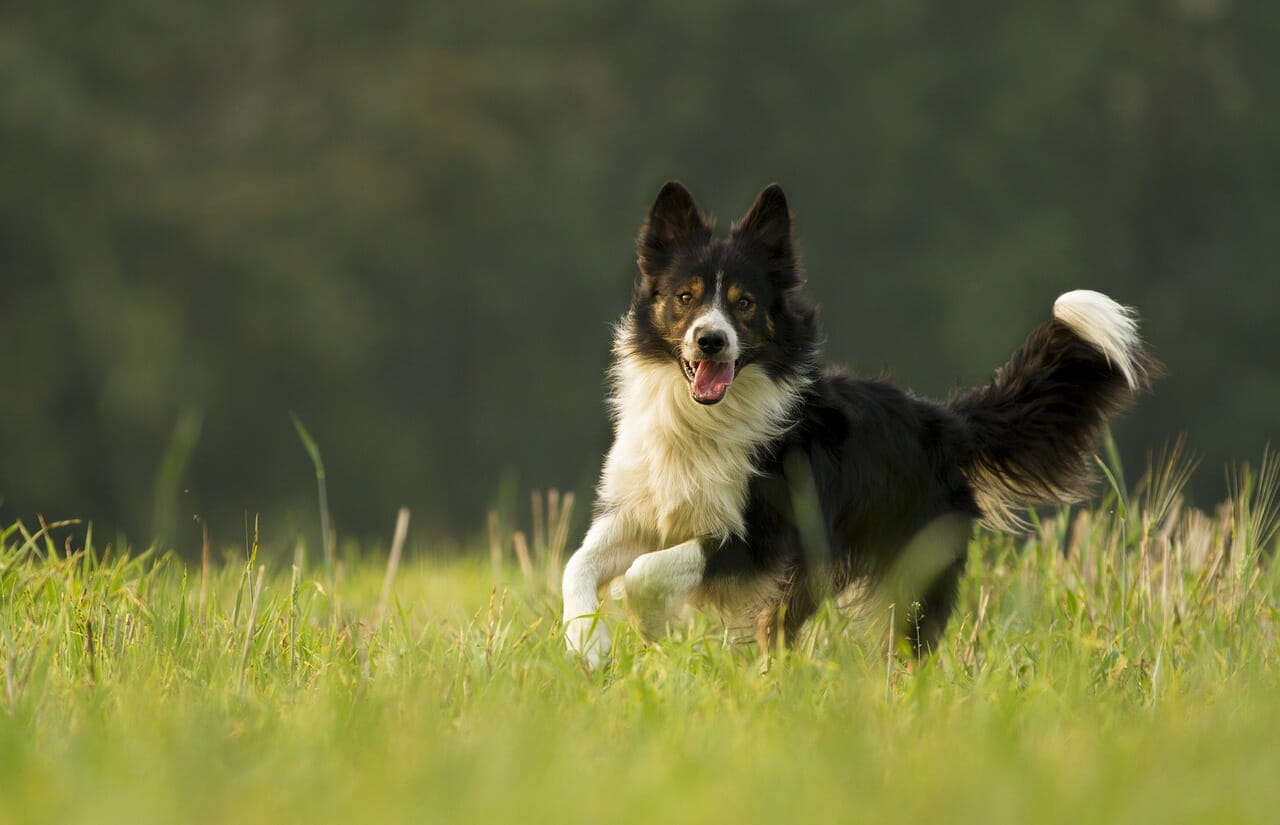
Another sheepherder, the Collie is another breed that checks all the boxes of what a good service dog should be. They are known for their intelligence, gentle nature and their long and luxurious fur that is great to cuddle up against.
They are a playful and gentle dog breed that will get along well with children and other canine companions. Although they have a good and even temperament, Collies can be wary of strangers which is why they make great watchdogs.
10. Bernese Mountain Dog
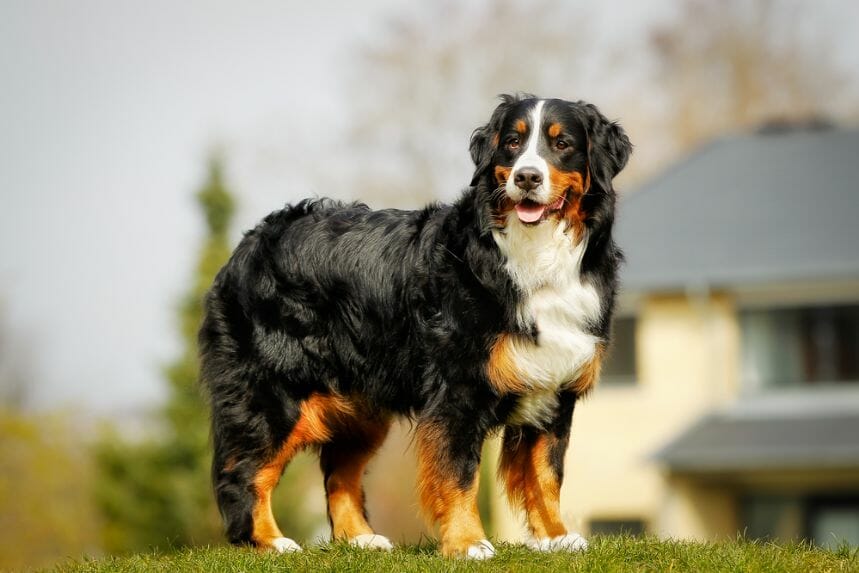
Bernese Mountain Dogs are not your regular dog breed. They are a giant breed that is known for its gentle nature. They can get quite large, so those who are considering this immense breed will need to be sure they have enough space.
However, they are one of the best emotional support breeds due to their gentleness and intelligence quotient. Their attachment to one human makes them a greatly loyal dog breed that can provide transportation and mobility support.
11. Havanese

We don’t know about you, but when we think about an emotional support dog or a therapy dog, our expectations are very different from a service dog – in appearance that is. The Havanese makes a great lap dog thanks to its high trainability and affectionate disposition. Their long locks of soft and gleaming fur make them a good snuggle buddy as well.
They are smart and can be tough some basic tricks to please the owners and to make their lives easier. They don’t require as much exercise as their larger canine relatives which makes this dog breed an easy to care for service animal.
12. Doberman
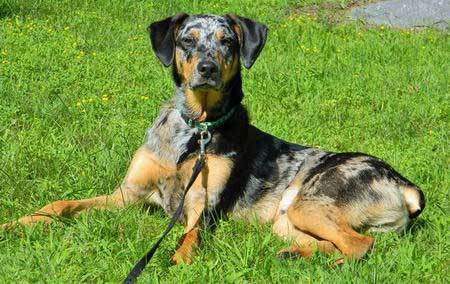
Before you question our credibility, just hear us out. The Doberman is ill-perceived to be vicious, fierce and a natural-born killer. We will admit that their looks do portray that to a certain extent, but what hides beneath that tough exterior is a loyal and affectionate disposition.
They love to be around their humans, which is what makes them a great emotional support dog. Their calm demeanor and matter-of-fact attitude can help diffuse potential problems and ground their handlers in reality.
They also make great military, police and guardian dogs that will put the well-being of their humans above all else. What else would you want in a guardian angel?
13. Boxer
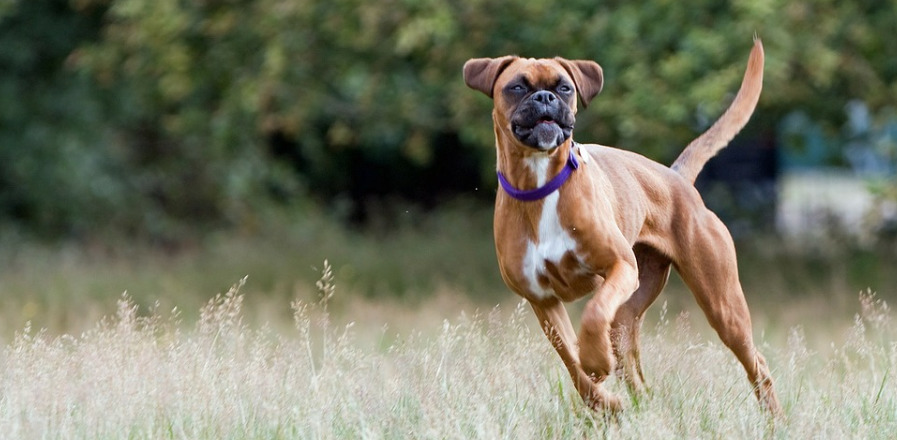
Boxers and Rottweilers are often associated with spike collars and an aggressive attitude. However, that couldn’t be further from the truth. Boxers often make lists regarding emotional and service dog breeds and earn themselves a spot on ours as well. They are large but gentle and can be the most affectionate pooches around.
One thing they can be is protective, but that doesn’t mean they show aggression. They see their mission in life as to provide good service to their humans and protect them from harm. Loyal, and friendly, the Boxer makes a good alert dog, and are especially great companions for kids with disabilities.
When it comes to dog food for boxers, it should be a balanced mix of meat and vegetables. You may check with your vet about the specific diet your dog needs for them to have the complete nutrition they need.
14. Samoyed
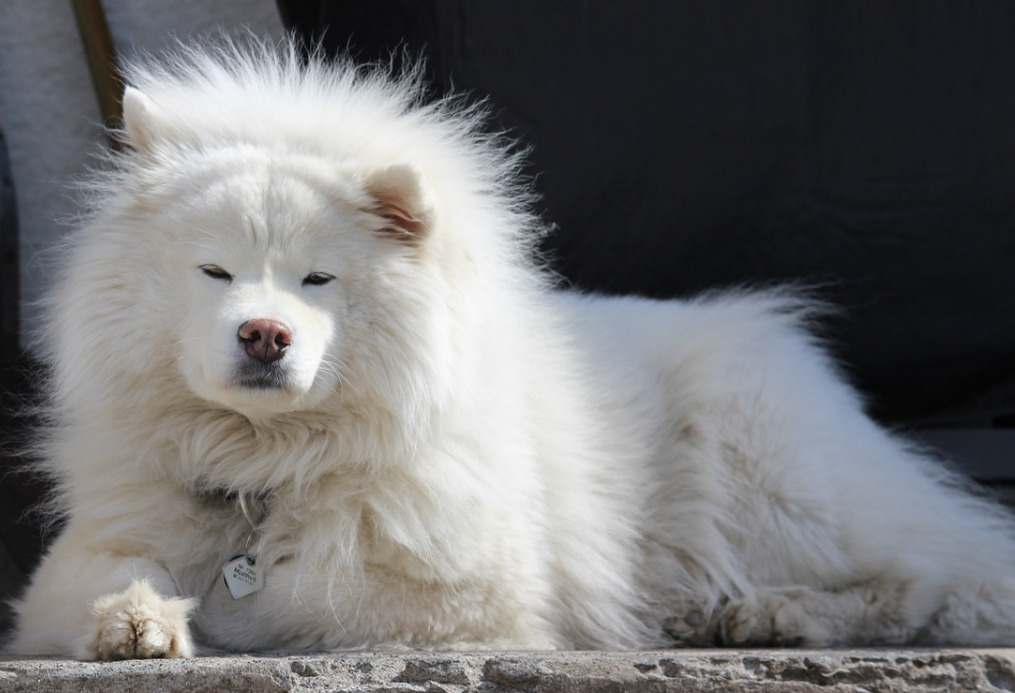
We are huge fans of walking clouds of fluff, which is why a Samoyed’s spitz smiling face, perky ears and ever-friendly expression and good nature takes a spot on our list. Samoyeds resemble white poms but are much larger in size. Spitz dogs such as Huskies are known to be stubborn and difficult to train, but working dogs in general such as the spitz breed do aim to please.
They are capable of forming deep bonds with their owners and can assist in day to day activities if needed such as opening doors and act as the motivation for daily exercise.
15. Bloodhound
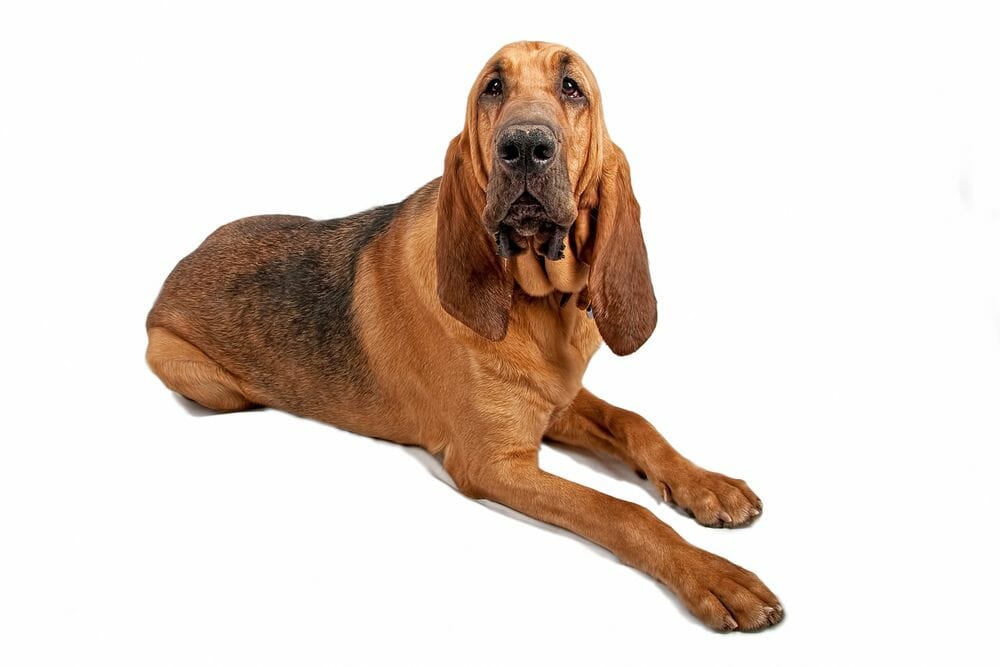
The name sounds a bit intimidating and when you know just how powerful their sense of smell is, these dogs can be quite formidable. What makes them a great service dog is exactly what we mentioned – their sense of smell.
With abilities as extraordinary as the Bloodhound, they make great search and rescue canines. They are also amazing cadaver dogs to help solve mysteries and work well alongside their brothers in blue and fellow German Shepherd police dogs.
How to Certify a Service Dog
We would not recommend going through the steps to certify your dog as a service dog if there isn’t a need for it. You yourself or a family member must have a physical, emotional or mental disability that has been clinically diagnosed.
The best service dog breeds need proper identification. This comes with rigorous testing to make sure an emotional support dog and other service dogs can provide excellent service people need.
The selected pooch must be a well-mannered canine at all times, especially in times of crisis. It must be able to perform the tasks necessary to aid the people it’s supposed to help. We understand that perhaps not all disabilities are visible to the eye, so if the service your dog provides is unclear, you must be willing to answer a few questions.
Any dog breed can be a service dog, because certification isn’t limited to generalization but rather each individual pup himself. Each dog has his own benefit and can be equally capable of providing the type of support you require.
Consider the type of dog you have and assess his or her temperament. They must be assessed by a professional to determine if their strengths, weaknesses and behaviors would be beneficial to you.
The next part after you have deemed your dog suitable is to go through with the training. You can choose to do this part yourself or hire a professional. We will say that hiring a professional to carry out the training can cost you anywhere from a few to over 20k for more intensive training.
In the USA, there are no set standards for service dog training. However, there are guidelines as to what basic tasks and skills the dog must have. Internationally, you may need to satisfy a minimum number of training hours over a set period of time.
Once you are confident in your dog’s abilities, you can sign up to take the public access test. This puts your pooch to the test in a public setting. You need to be sure he or she will not exhibit any aggressive behavior, cease all undesirable habits such as jumping, lunging, sniffing, etc., won’t be tempted by food, maintains an even temperament, can tolerate all unexpected noises and visuals, won’t bark at will, and be perfectly potty trained.
It sounds like a lot of work, and it truly is to get your dog ready for service. One thing you can be sure of is the rewarding feeling you will have once you obtain the certificate. In the USA, service dog ID and certification is not a requirement. Establishments are not allowed to ask for such identification paperwork before allowing a dog to enter.
Since there are also strict rules about allowing dogs into a restaurant, hotel, or other public buildings, many establishments will still ask for documentation. This is when necessary documents provide a benefit as you will not be met with unnecessary hostility and aggression towards needing the company of your dog. However, staff members and authority are allowed to ask two questions regarding your canine companion: Is the dog a service animal? What service(s) does it provide?
Once you have given answers that satisfy their terms, accommodation and must legally be granted to you and your service dog. You and your pooch have rights that people must adhere to, whether or not you have documents to prove it. We will emphasize again that we do not condone dishonest behavior of any kind that entails faking a disability just to gain access to establishments for your dog.
Service Dog FAQs
What breeds of service dogs make the best service dogs?
There are some general breeds such as the Golden Retriever, Labrador Retriever and German Shepherd that are renowned for being amazing service dog breeds. In general, a good service dog should be highly intelligent, trainable and affectionate.
What dogs are best for emotional support?
Smaller breeds such as Poodles, Havanese, and Poms that are loving and affectionate are wonderful emotional support animals for anxiety, PTSD, depression and more. They can perform the task of diffusing a highly volatile situation by doling out licks.
What is the best service dog for anxiety?
The best service dog for anxiety would be a Golden Retriever, Lab, Pom, King Charles Spaniel, and many more with even temperaments, lots of affection, friendliness and high trainability.
What makes a good service dog?
A good service dog will be gentle, highly trainable, friendly, affectionate and have even temperaments. This is regardless of the breed and can be assessed through each individual dog.
What conditions can service dogs be used for?
Service dogs can be used for emotional support and trauma such as PTSD, anxiety and depression, and are classified as emotional support. True service dogs are trained to carry out certain tasks that will alleviate day to day difficulties for certain individuals or trained to perform public services such as police dogs.
Can a service dog have two handlers?
In general, yes. A service dog can be trained to perform a variety of tasks that can benefit more than one person in the household. There are also special cases where an individual may need more than one service dog to complete day to day activities.
Conclusion
The best service dogs are not only known for their physical and mental abilities, but also for their emotional support. If you come across dog breeds that can excel in all of these areas, then you may have amazing potential service dogs on your hands.
There are certain traits to look for in these dogs regardless of breed to define whether or not they are suitable. Moreover, service dogs are known for their deep compassion for their humans and their unwavering loyalty.
While in the USA, these dogs do not need certification to prove their service, we would recommend having relevant paperwork on hand such as a service dog ID badge or training certification to assure establishments that your service dogs are legitimate and provide a necessary support. Ever since the emergence of service dogs, canines have truly solidified their place in the world as man’s best friend.

